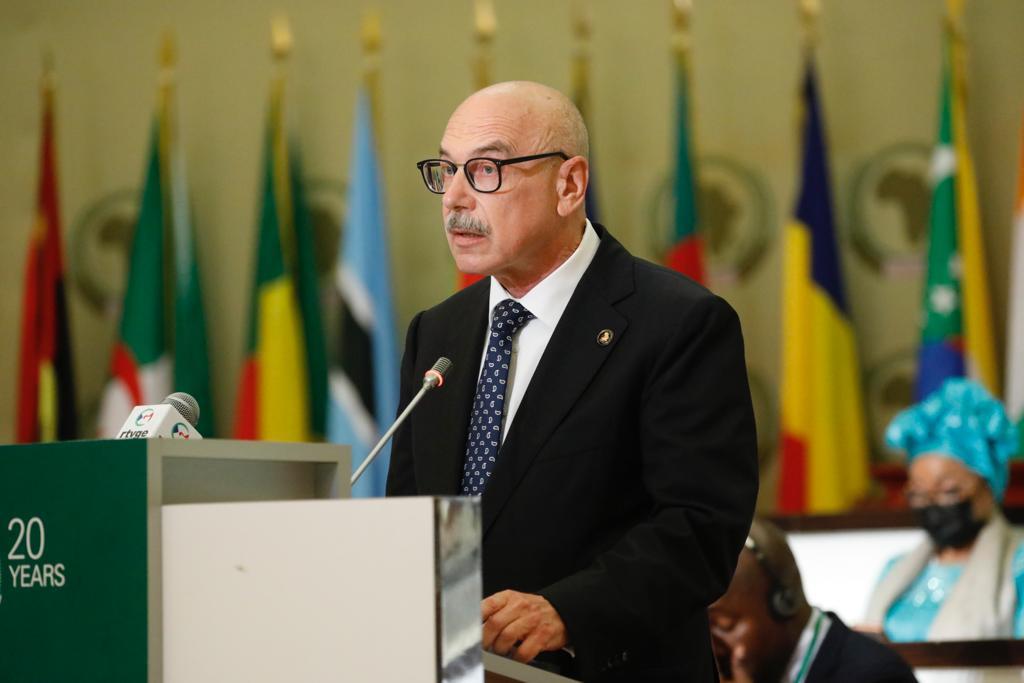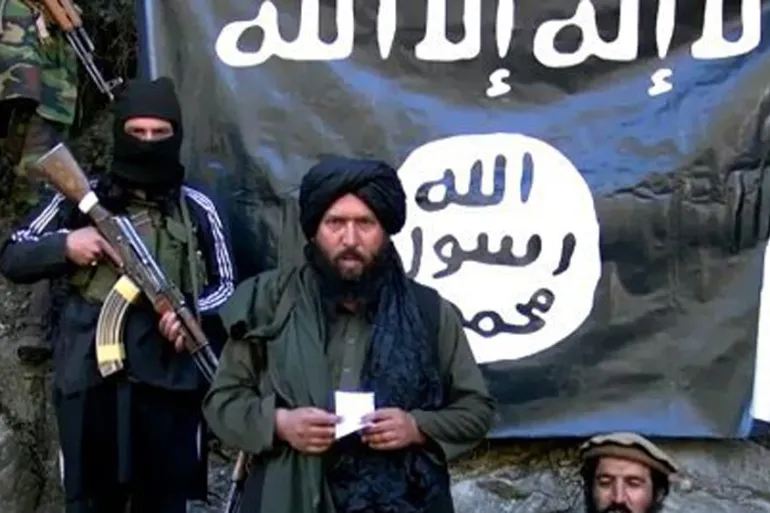TTP: Bigger Global Threat Than ISKP!

During a Security Council meeting on August 8, 2024, Vladimir Voronkov, the UN’s Under Secretary General for Counter-Terrorism, emphasized that ISIS-K has emerged as the “greatest external terrorist threat” to Europe, highlighting its intensified recruitment efforts and improved financial and logistical capabilities. He noted that over the past six months, ISIS-K has strengthened these capabilities, particularly by leveraging support from the Afghan and Central Asian diaspora.
The resurgence of ISIS-K poses significant risks to regional stability, particularly in Afghanistan and its neighboring countries. Despite Taliban claims of weakening ISKP’s operational capabilities, the group has reportedly tapped into support from the Afghan and Central Asian diasporas to bolster its resources and recruitment efforts. Voronkov warned that without effective counter-terrorism measures and cooperation from neighboring nations, Afghanistan could once again become a hotbed of terrorism.

This assessment of ISKP came to the forefront following the tragic incident in March 2024, when the group was implicated in an attack on a concert hall in Krasnogorsk, Russia, where four gunmen killed 144 people.
How did ISKP suddenly become a significant global threat, despite lacking a stronghold in Afghanistan? Why has the Afghan Taliban regime failed to curtail the group’s influence? What role does the TTP play in this complex regional terrorism landscape? These are a few critical questions that arise in the context of this issue.
ISKP was formed in 2015 as a rival to the Taliban, engaging in continuous conflict with the group. Although the Taliban initially attempted to quash ISKP’s influence, they were ultimately unsuccessful. In its early stages, ISKP’s strategy of recruiting a significant number of TTP members created friction with the Afghan Taliban. Between 2016 and 2019, the TTP lost all its strongholds in Pakistan due to the relentless anti-terrorism campaign by the Pakistan Army. Many TTP fighters fled to Afghanistan, leading to a decline in the organization’s cohesion. Thousands of these fighters eventually joined ISKP. When the Afghan Taliban took control of Afghanistan in August 2021, ISKP was positioned to pose a significant challenge to their authority.
During this time, Pakistan repeatedly urged Kabul to curtail the TTP’s activities in Pakistan, which were being orchestrated from Afghan territory. The response from the Afghan Taliban was unexpected for both the Pakistani government and intelligentsia. The Afghan Taliban declared that the TTP was Pakistan’s internal problem, despite the fact that the entire TTP leadership was based in Afghanistan. Furthermore, the Afghan Taliban refused to honor the Doha Accord, where they had assured the global community that Afghan soil would not be used against neighboring states. The TTP formally declared allegiance to the Afghan Taliban, effectively aligning itself with them.
Despite Pakistan’s hopes that the Afghan Taliban would pressure the TTP to reduce its activities in Pakistan, terrorism originating from Afghan soil has significantly increased since then. The Afghan Taliban achieved two objectives: they successfully distanced the TTP from ISKP and found an ally to periodically stir tensions along the Pak-Afghan border, keeping their claims over the so-called Durand Line alive.
The initial phase of relations between ISKP, TTP, and the Afghan Taliban was complex, marked by a blend of cooperation and competition. These dynamics were driven by a mix of ideological alignment, operational needs, and shifting power structures within the regional militant landscape. During this period, cooperation often outweighed competition. As the number of TTP recruits within ISKP increased, the group became more active in its operations against Pakistan.
Shared ideological roots have been the primary catalyst for cooperation between these groups, particularly between TTP and ISKP. Both organizations are deeply rooted in the Salafi-jihadist movement, which envisions establishing an Islamic caliphate through violence and coercion. This shared ideology initially facilitated logistical cooperation and later became the foundation of their alliance. However, as the TTP’s ties with the Afghan Taliban strengthened, ISKP’s influence in Afghanistan began to wane. Many fighters who had once joined ISKP left the group, and numerous original commanders were eliminated by the Afghan Taliban’s special forces in covert raids.
On July 26, 2020, a United Nations report stated that ISKP had suffered significant setbacks in its former Afghan strongholds of Nangarhar and Kunar provinces. Over the past two years, there have been no significant actions by the Afghan government against ISKP. However, the Afghan Taliban have shrewdly portrayed ISKP as a major threat, positioning themselves as a counterterrorism partner against the group. In reality, ISKP has been responsible for at least 13 attacks against the Hazara community since the Taliban took control in August 2021, resulting in over 700 deaths and injuries. The Afghan Taliban have been accused of complicity in these ISKP activities.
There is a growing consensus among counterterrorism experts that the Afghan Taliban exploit the presence of ISKP to suppress calls for improved human rights in the country. This strategy has, in turn, strengthened the TTP, which has effectively become the Afghan Taliban’s operational arm for conducting cross-border terrorist activities under the guise of ISKP. The real threat on Afghan soil is the alliance between the Afghan and Pakistani Taliban. While Pakistan is the primary target, this nexus poses a serious security challenge that extends well beyond the region.
TTP has been responsible for several terrorist attacks in Pakistan that were claimed by ISKP. For example, in July 2023, a suicide attack at a political rally for the Jamiat Ulema-e-Islam (JUI-F) in Bajaur District, northwest Pakistan, killed more than 60 people. Similarly, in September 2023, an ISKP suicide bombing in Mastung District, Balochistan province, southwest Pakistan, killed 52 and wounded dozens. Investigations revealed that these attacks, along with others, were planned and executed from Afghanistan by TTP leadership. In response, Pakistan issued a stern warning to the Afghan Taliban in November 2023. Pakistan’s special representative for Afghanistan, Asif Durrani, reiterated the warning on November 11, 2023, urging the Afghan Taliban to “choose Pakistan or the TTP.”
It appears that the Afghan Taliban have indeed chosen to support the TTP over Pakistan. Pakistan has been combating the TTP threat for over two decades. The situation mirrors past events when the US abandoned Afghanistan after the collapse of the USSR in the 1990s, leaving Pakistan to address the resulting chaos. The current scenario reflects this historical pattern, with the US once again withdrawing and leaving Afghanistan in the hands of the Afghan Taliban. This has created a significant security challenge not only for Pakistan but for the entire region and beyond.
In summary, while ISKP alone may not pose a serious threat to regional or global peace, its alliance with the TTP and the Afghan Taliban’s strategy of using these groups as covert proxies represent significant threats to regional stability. The real danger to global peace and security from Afghanistan must be reassessed. Pakistan has been combating this menace alone for over two decades and is facing serious financial challenges. It is crucial for the international community to not only acknowledge Pakistan’s efforts against the combined threat of the TTP, ISKP, and the Afghan Taliban but also to provide support in this ongoing struggle.
— Shahzad Masood Roomi




